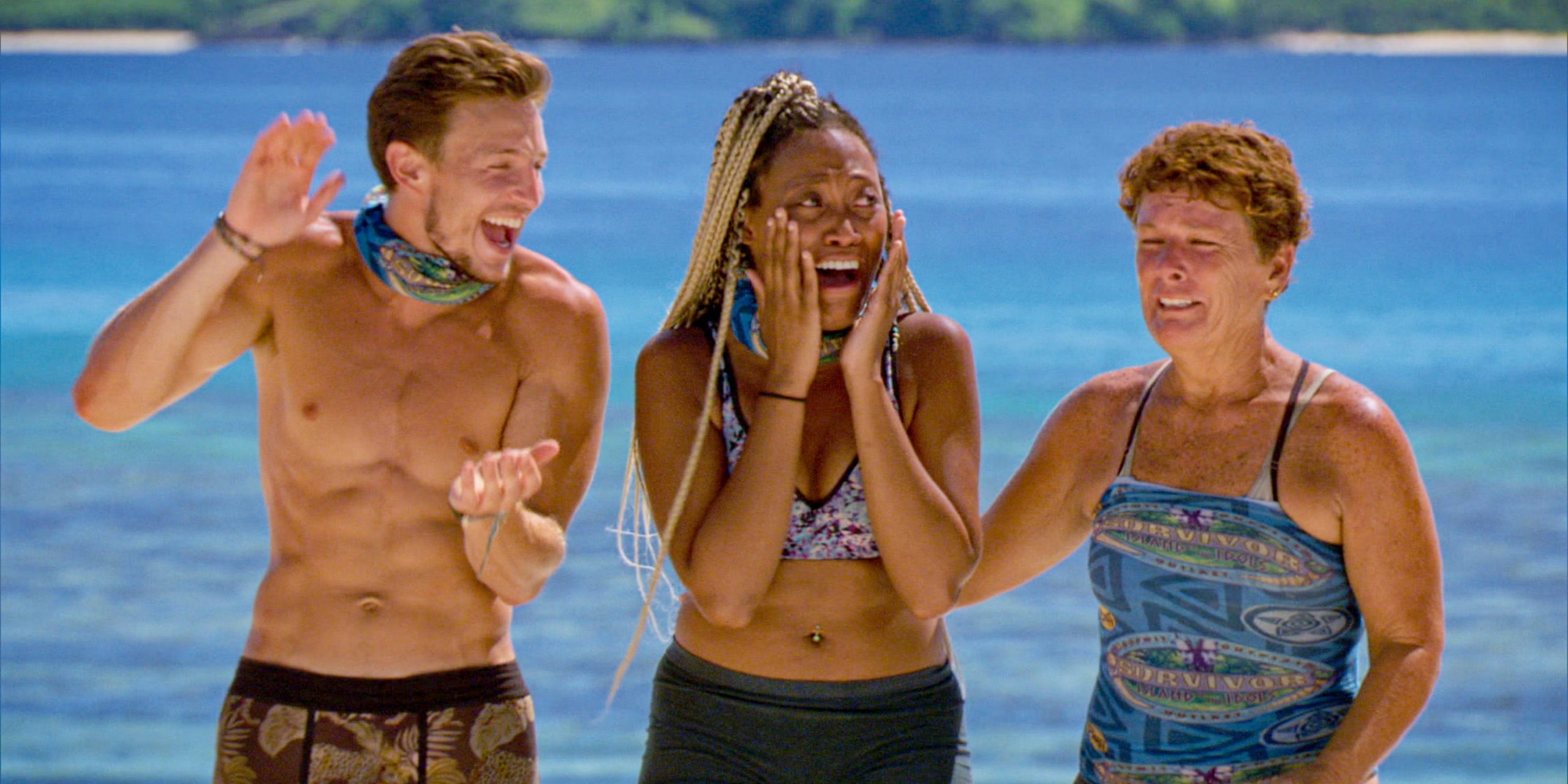
CBS Photo Archive/Getty Images
- Former "Survivor" players told Insider what it's like applying for and getting on the hit series.
- Several competitors sent in a video audition that showed off their personality.
- Training for the show can be both physically and mentally stressful.
- Visit Insider's homepage for more stories.
Before players can outwit, outlast, and outplay each other for $1 million on CBS' "Survivor," they have set themselves apart during the highly competitive application process.
Insider interviewed former "Survivor" competitors about their experience on the reality series to find out what it's like to audition for and actually get on the show.
Many applicants send in video auditions, but successful ones made sure to show off their personality
One way of applying for the competition series is by sending in a video audition. "Survivor" hopefuls should to pack their tapes with a personality to catch the eyes of casting directors, according to former players.
Three-time "Survivor" competitor Malcolm Freberg told Insider that his video just showed him "walking around the house with a Four Loko" and telling stories to the camera.
"It's all about being a storyteller," Freberg explained. "It's not about what you're saying at all. It's about how you're saying it."
Freberg also said that the casting director initially noticed his video because he coincidentally included one of her favorite songs, "Anarchy in the UK," as a background track. He recommended that applicants add music to their tapes since "you never know what's going to hit."
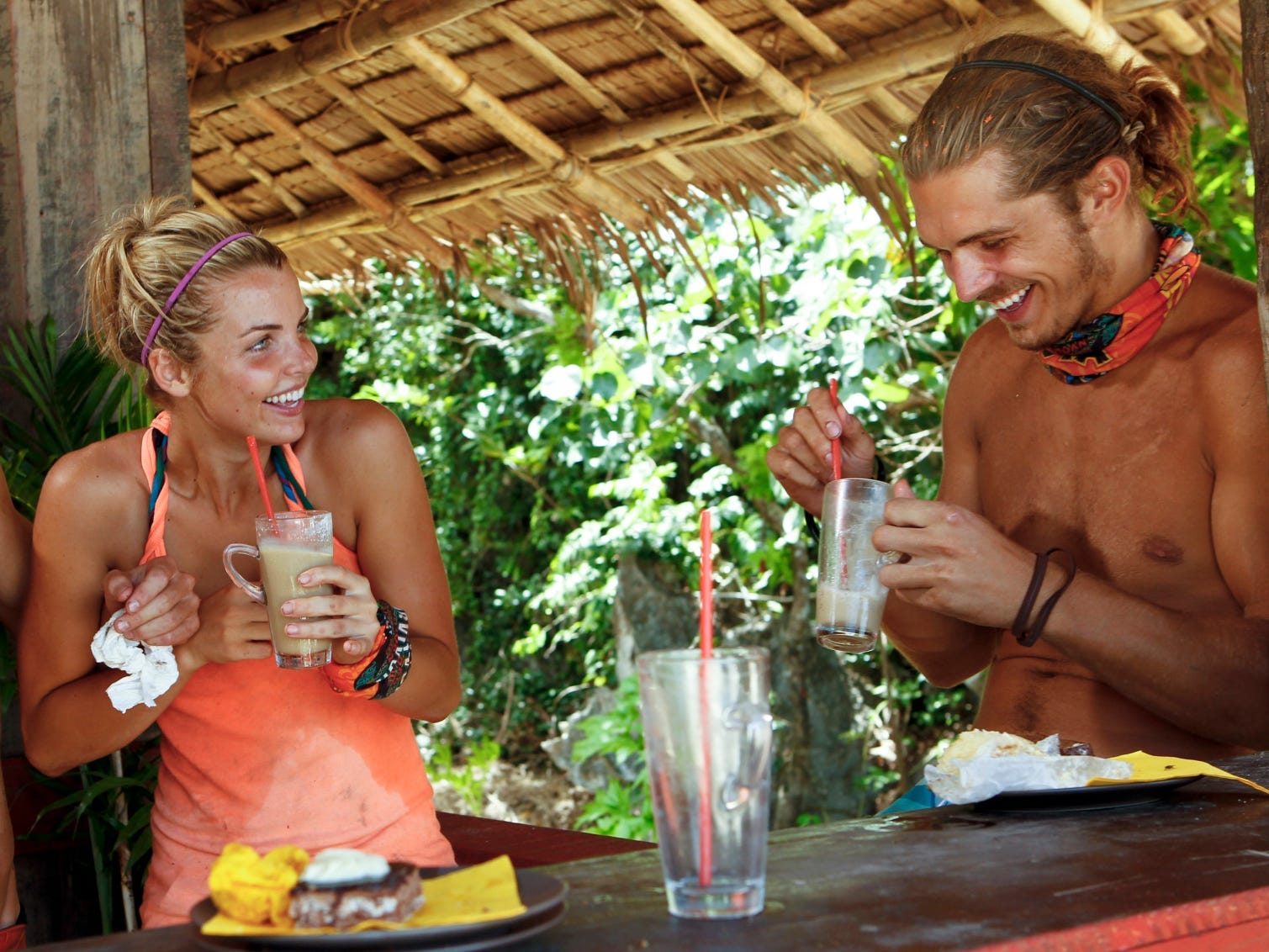
CBS Photo Archive/Getty Images
Three-time "Survivor" player Andrea Boehlke agreed that storytelling is a huge component of the audition process and added that the producers are looking for big personalities.
"... Make sure it's a heightened version of yourself and definitely lean into your personality, your quirks, and what makes you unique," Boehlke advised.
Boehlke also said that it's important to prove to producers that you have a new way of approaching the competition so that you can get their attention.
She added that if you just offer "vague statements about the game," casting directors "probably won't give you another look."
Competitors said that the audition process can be extremely lengthy
Tyson Apostol, who appeared on the series four times and went on to win "Survivor: Blood vs. Water," told Insider that the process can take months from start to finish since "you have to jump through so many hoops" the first time you're on the show.
"They're like, 'Oh, we'll stay in touch' and 'We'll call you next week,' and then three weeks will go by and they'll text you, 'Sorry, we don't know yet,'" Apostol said.
He said potential players have to wait on a lot of people, like casting directors and producers, to give their input so you should apply "if you're good at the waiting game."
Casting directors may purposefully push applicants' buttons during interviews
Freberg said that a week after he sent in his tape, he was chosen for a phone interview. But he added that some casting directors like to "push your buttons" on the call to "see how you're going to react."
"My casting director is infamous for trying to rattle you and see how you deal with it, like to get the personality out of you on the phone," Freberg said. "And I think she likes me because I stood up to her a lot."
During the second round of interviews, applicants may meet Jeff Probst and the producers in-person
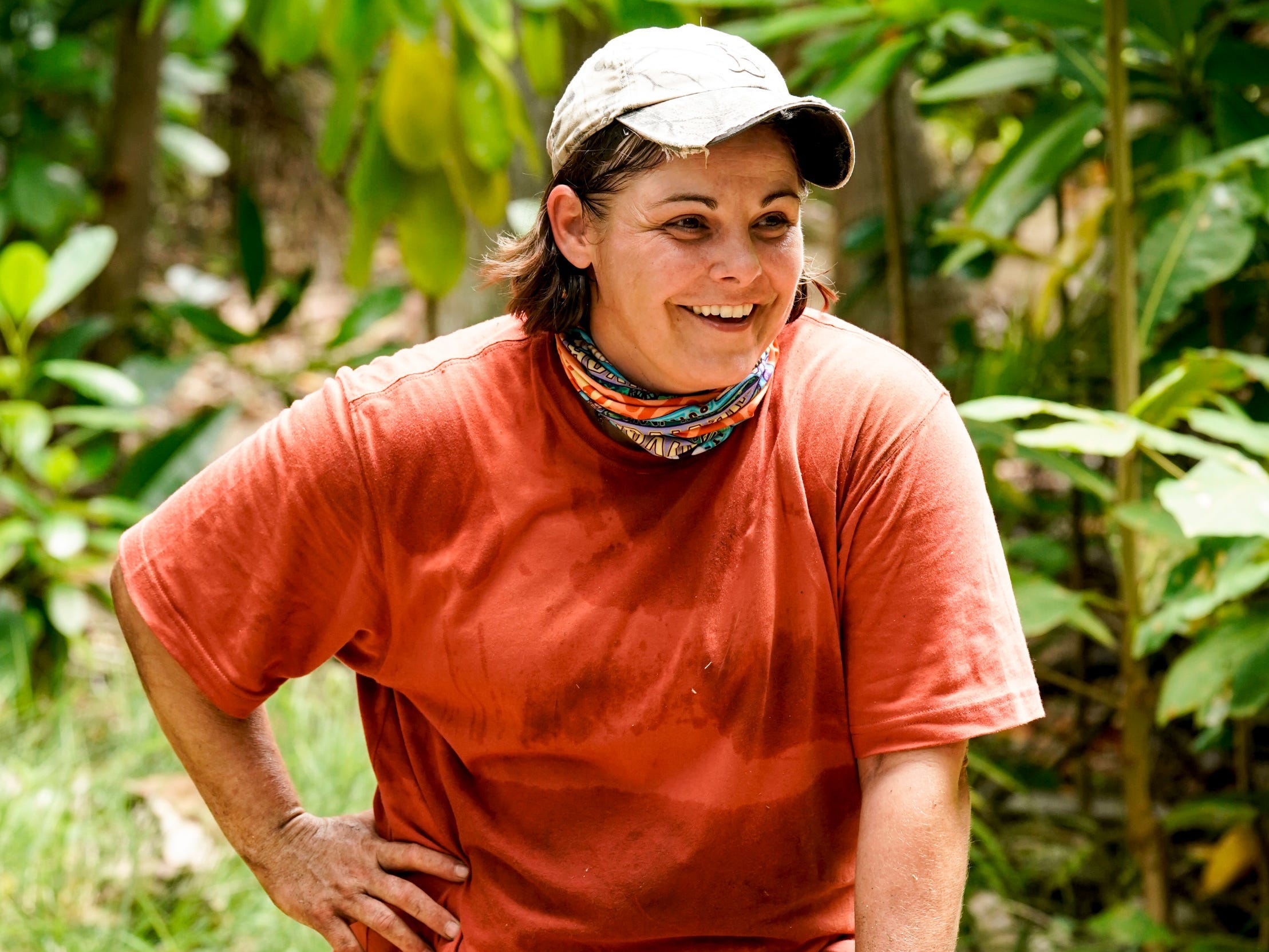
CBS Photo Archive/Getty Images
After applicants make it past the phone interviews, they may be taken to a hotel for the next round of the vetting process. Former players said that this is typically when they met host Probst and other producers.
"Survivor: Island of the Idols" player Elaine Stott said that although she was nervous before she met the "Survivor" host, the fact that she was sitting in front of producers and Probst "didn't really matter to me."
"I told dirty jokes, I flirted, I cussed, I made fun of myself. That's just how I am in general," Stott told Insider. "... I said, 'Jeff, you're just a man, you put your britches on just like I do.'"
Freberg added that the interviewers just "tell you to start talking" instead of asking direct questions, and Probst sits there "trying to size you up and trying to be intimidating."
"You just need something funny to say, so I made it up on the spot," Freberg recalled. "... I look at Jeff and I go, 'My grandma's gonna freak the f--- out when she finds out I met you.'"
Freberg added that his joke "got a big laugh," so he was "off to a good start after that."
Some competitors had to apply several times before getting cast
Stott said she began auditioning for "Survivor" in college and wasn't cast until she was in her 30s.
She added that the video-audition process wasn't easy for her, but she knew that she would be "a shoo-in" once she could talk to the producers face-to-face.
"I was nervous going into the interviews, but I just knew that once I got to talk to these people and tell them a joke or two, or just be myself, it would be OK," Stott told Insider.
Other players were waitlisted as alternates before they were cast
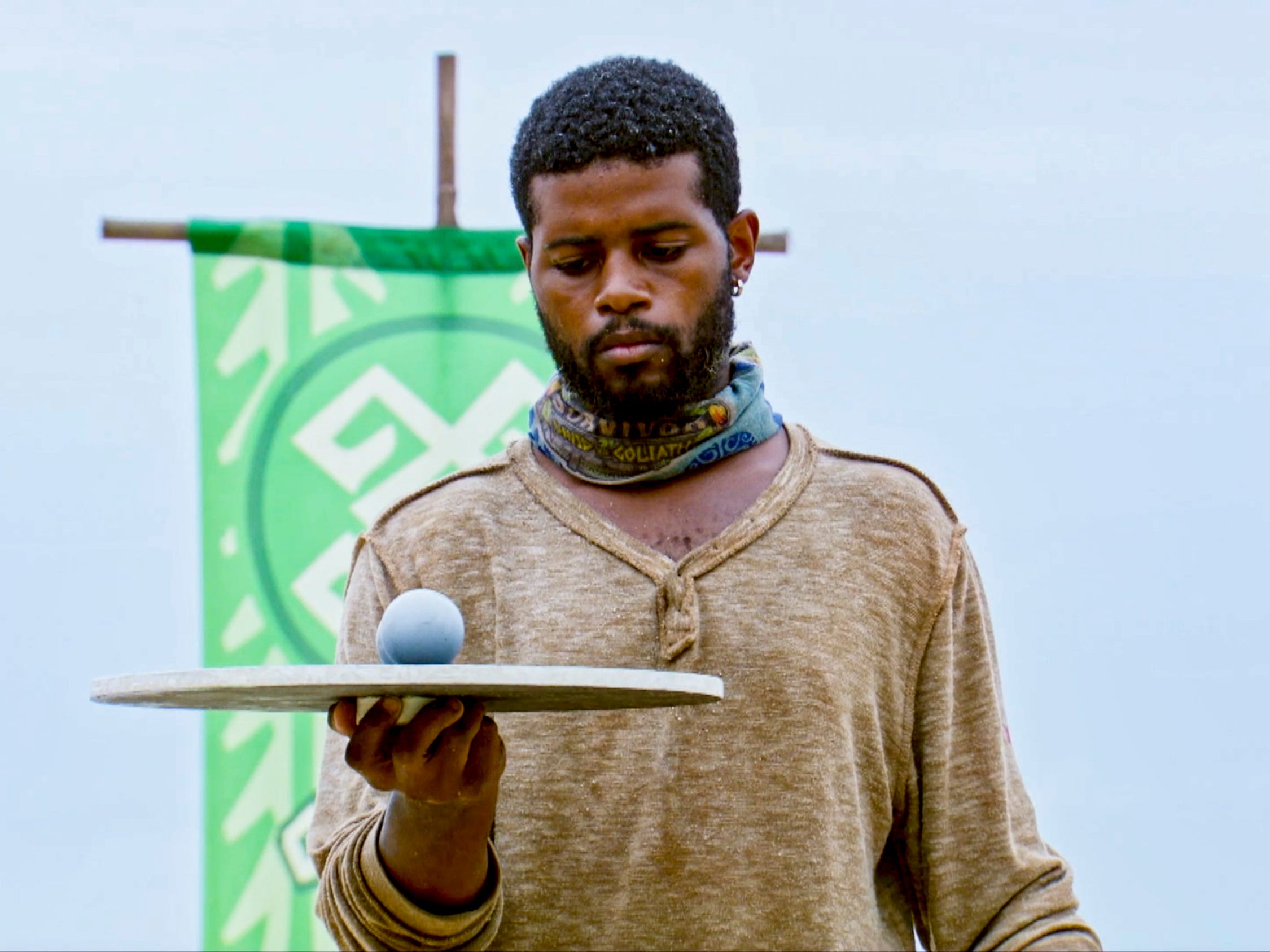
CBS Photo Archive/Getty Images
"Survivor: David vs. Goliath" player Davie Rickenbacker said that after his interviews in Los Angeles, showrunners didn't tell him if he was on the show or not.
Ultimately the producers informed Rickenbacker that he had not been cast for the show and that he was on standby as an alternate.
Rickenbacker told Insider that he was glad he continued training - watching "Survivor" footage and doing "little puzzles here and there" - even though he didn't expect to hear back.
"You have to always be training just in case you get that phone call," Rickenbacker added.
Once they're picked, some chosen competitors train as hard as they can by practicing physical challenges and puzzles
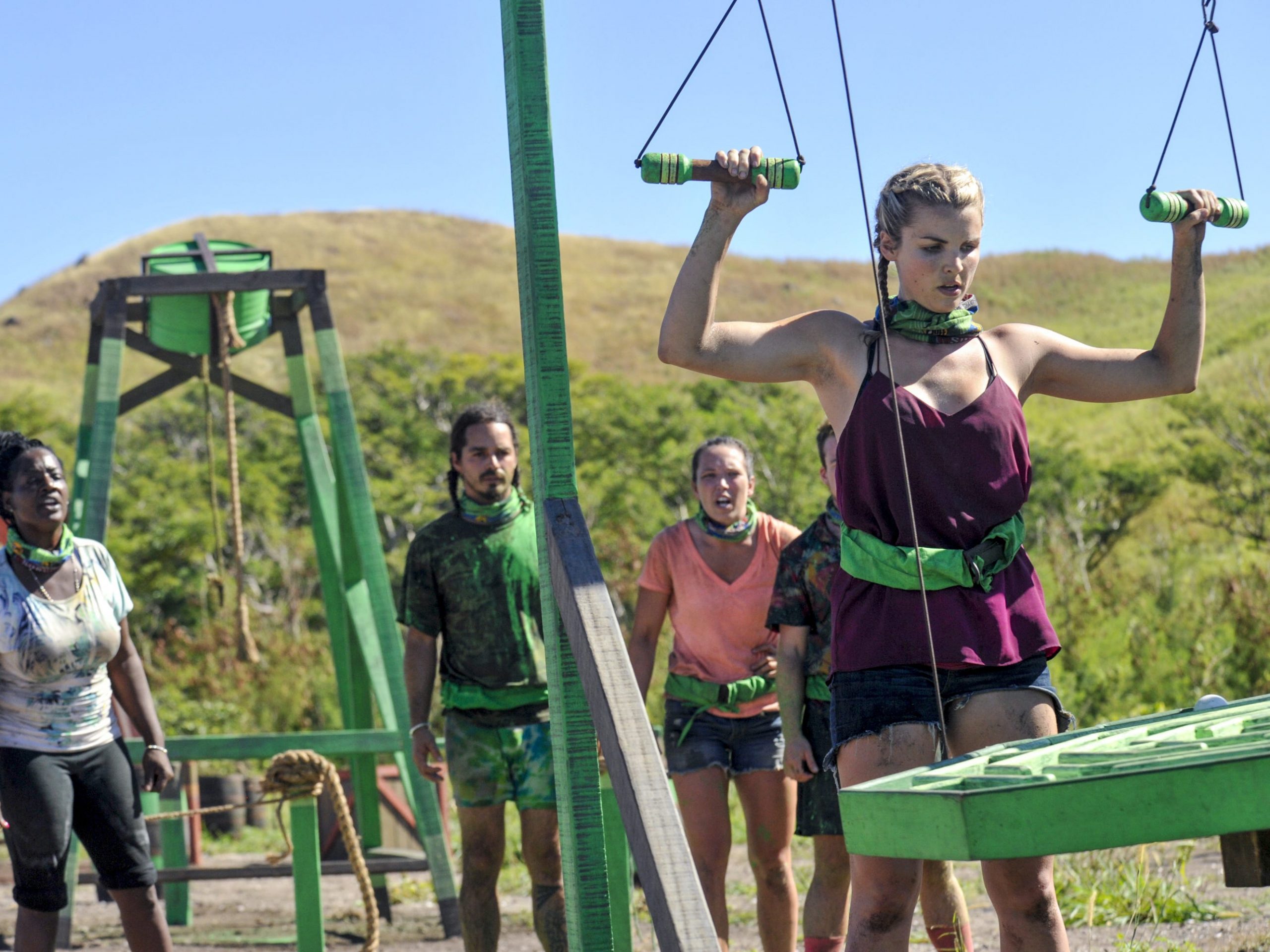
CBS Photo Archive/Getty Images
Boehlke said she "went crazy preparing" after she was cast on "Survivor: Redemption Island."
She told Insider that her extensive training involved "any sort of game or challenge you would see on 'Survivor,'" like balancing on farm fences, building fires, and even practicing with a bow and arrow.
"I trained very, very hard because I wanted to make sure that I wasn't the weakest in any challenge," Boehlke explained. "Because you never know, especially early on in the game, if you're really bad at a certain challenge, that could be a reason that they vote you out."
Freberg said that once he was cast on his first season, "Survivor: Philippines," he had a month of preparation before he left for the island. So he binge-watched past seasons, learned to tie knots, and completed puzzles during the day, and then worked as a bartender at night to "pay the bills."
But the training process may convince some players to hire a survival coach and embrace the outdoors
"Survivor: Island of the Idols" competitor Lauren-Ashley Beck said that she knew she had to get her "a-- into gear" as soon as she was cast.
To help prepare for her time on the island, Beck hired a survival coach and began spending more time outdoors, even if just in her backyard.
"I'm an indoor girl through and through, adventure is not my middle name," Beck told Insider. "I had never slept completely outside."
Beck built her own shelter outside and slept in it. She said that although "I bawled my eyes out" the first time, she was happy to cry at home rather than when she got to the island.
But Beck added that she also learned new skills along the way that could prove useful on the show, like making rope out of yucca plants.
Before arriving on the island, competitors need to submit outfits for approval
"Survivor" competitors get one outfit on the island to last them up to 39 days, and several of the players confirmed that they sent in clothing options in advance to get approved by the wardrobe crew.
But the players hardly had the final say - Stott said she had to bring "shorter panties than I would ever wear" since "they don't want everybody to have the same kind of outfit." She said she compromised by requesting to bring her hat.
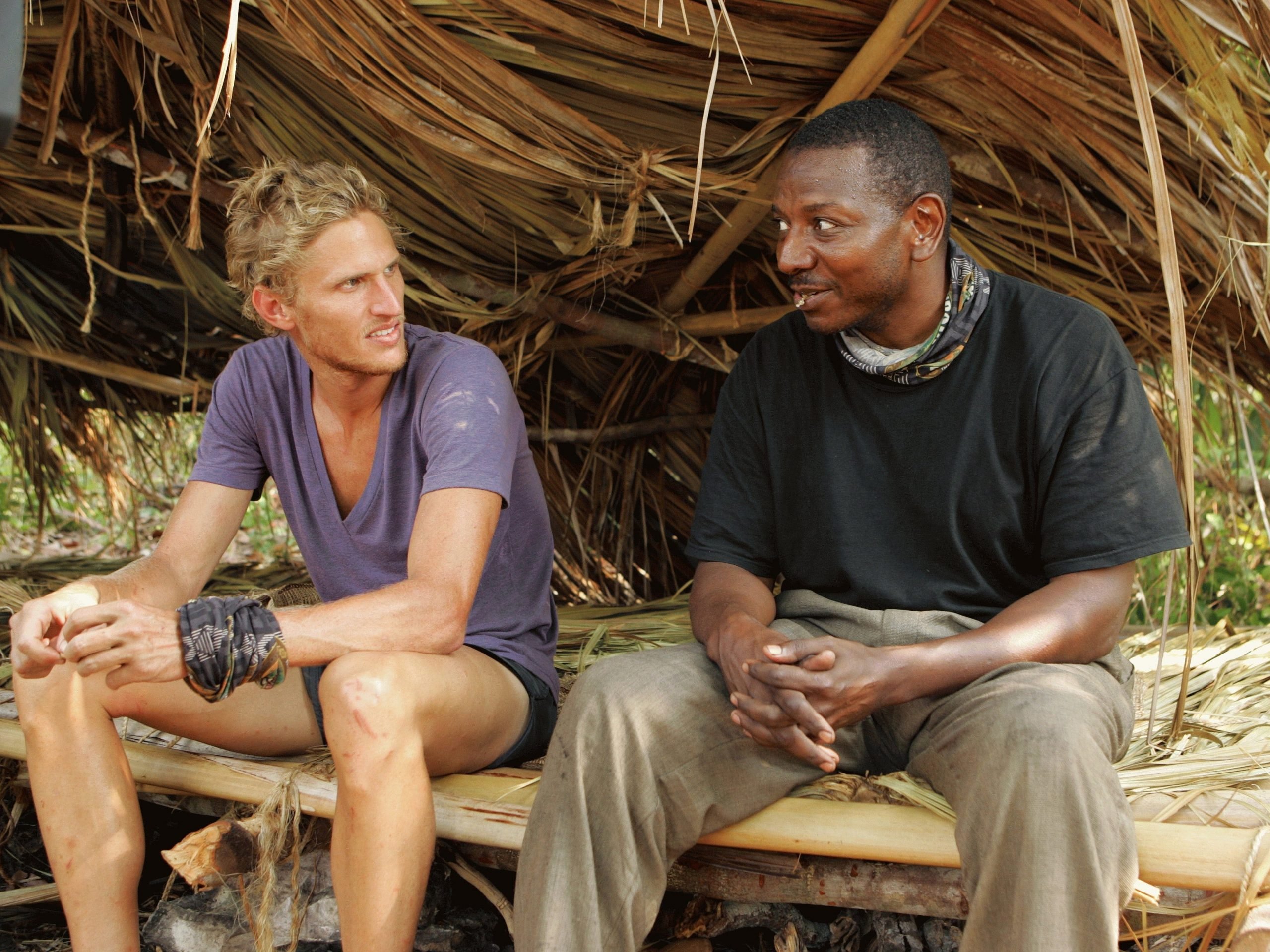
Monty Brinton/CBS via Getty Images
Apostol also told Insider that he was "suckered" into wearing his deep V-neck when he sent in options for both game clothes and press-day outfits.
"The first time I was on the show, they said, 'Submit three outfits that you'll use for press day' - so something you would wear to a business-casual dinner," Apostol told Insider. "For me, it was just like jeans and a T-shirt."
He said they chose one of his press-day outfits for him to compete in and he thinks they never even looked at his game clothes.
For more details, read 'Survivor' players reveal how the show chooses their only outfit and what it's like wearing it for up to 39 days.
Some players get a phone call to return for another season
Some "Survivor" players hope to get back into the game for another chance at a prize. But Apostol said that former players trying to compete again "just got to live your life" and "not play the waiting game."
"When you return, they just call you," Apostol said. "... I think the people that have been on the show and want to go back again, and keep asking to go back, actually ruin their chances of going back."
Boehlke, who has been asked back twice, said it's hard to pass on such "a once in a lifetime opportunity."
"I'm a very competitive person, like most people that play 'Survivor,' so it's just hard to say, 'No,' because the worst-case scenario is you're voted out first and then you get a free trip in," Boehlke told Insider.
That said, the game can take both a physical and mental toll on players, and Boehlke added that she'd need to make sure her mental health is "in check" and have a way to not "take the social-media aspect of it so seriously" before she considered competing again.
Players have also been pushing for more diversity in the casting process
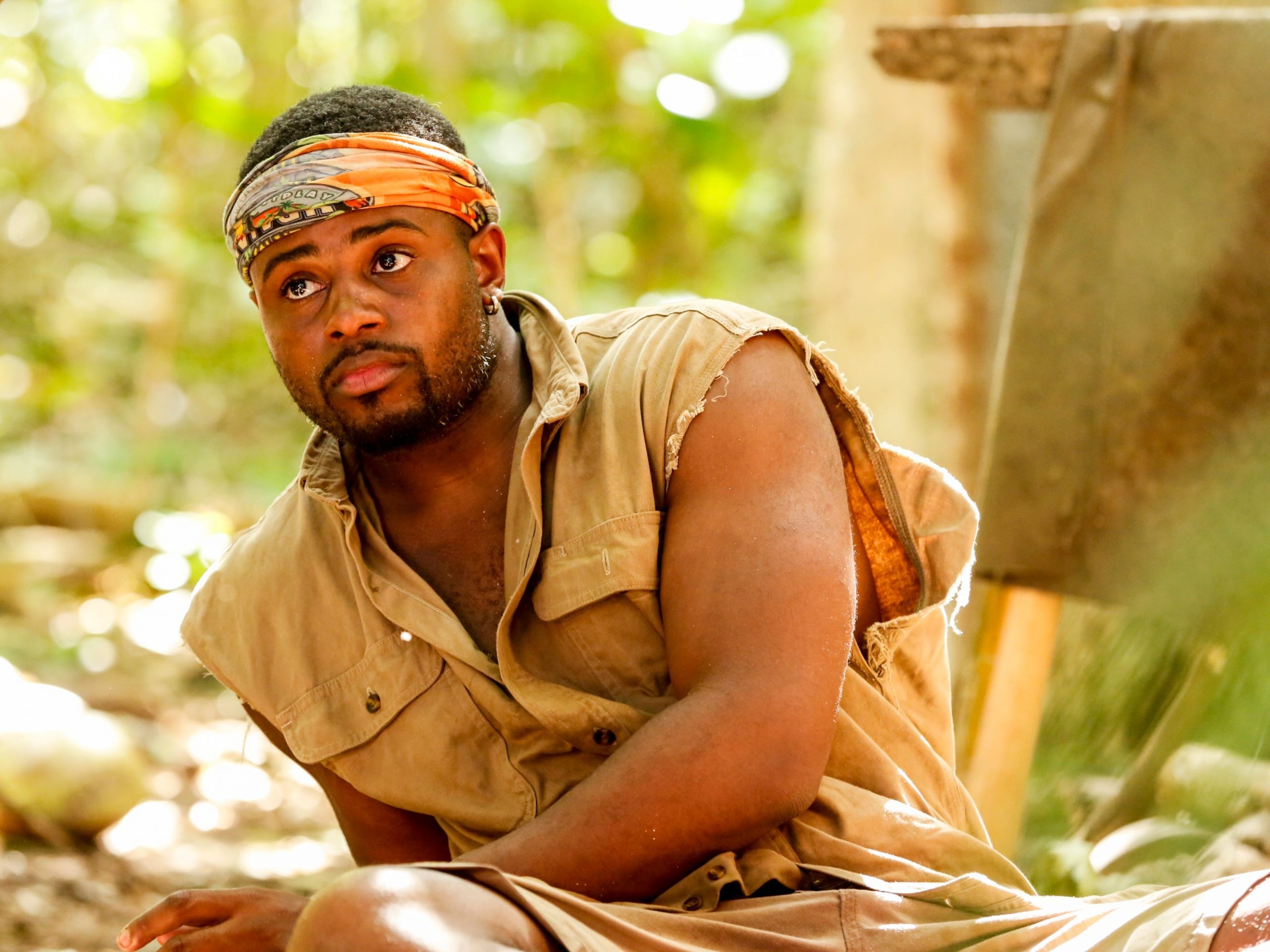
CBS Photo Archive/Getty Images
"Survivor" players have also spoken about pushing for more diversity in the show's casting process and beyond.
Rickenbacker said that he, Beck, and other former players helped create and promote a petition for diversity and inclusion both in front of and behind the camera.
"We, the Black ['Survivor' players], developed a petition that said this is what we want to change," Rickenbacker said. "We want to see some different crew members. We want to see some different people behind the scenes in casting."
"It's not going to get better overnight, but I do see that progress is being made," he added.
In November, CBS released diversity initiatives for its unscripted series, including a "target for all future unscripted programs to have casts with at least 50% of the contestants being Black, Indigenous and People of Color (BIPOC), beginning in the 2021-2022 broadcast season."
"Survivor: Island of the Idols" player Karishma Patel said she's also hopeful about the future of the show.
"I think there's going to be a change," Patel told Insider. "I think they're going to start focusing a lot more on not just the gender differences, but also the racial differences, the cultural differences, and people coming from different backgrounds."
Representatives for CBS declined to comment on the record when reached by Insider.
Follow along with our series of interviews to see what else the former players revealed to Insider.
